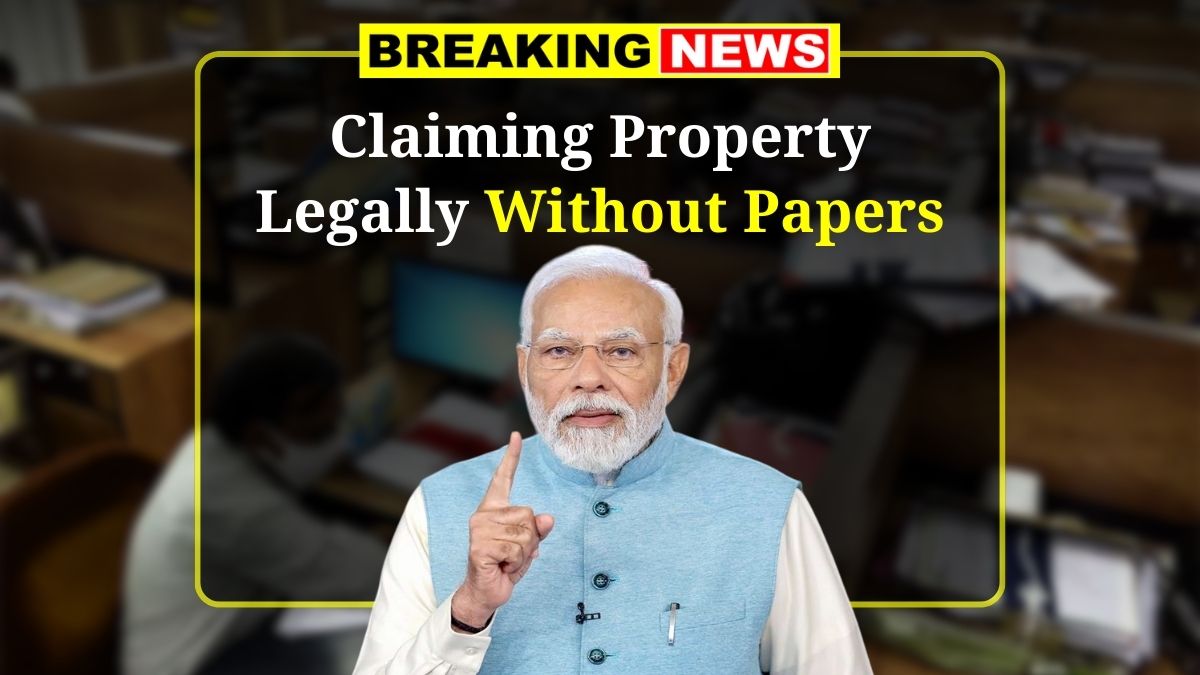Land Ownership Documents – In India, many people live on land that’s been in their family for generations—land they use, farm on, or even built homes on—but without any official papers to prove ownership. Whether it’s because the land was inherited informally or passed down without proper registration, this lack of documents can cause major issues when it comes to legal claims, disputes, or even basic things like getting loans or selling the property. But don’t worry—there are ways to legally claim ownership even if you don’t have the papers. Let’s break it down in simple terms.
Why Land Documents Matter So Much
Having proper land documents is more than just a formality. They are essential when you need to prove ownership during disputes or court matters. These documents also make you eligible for government schemes and subsidies. Plus, they allow you to sell, lease, or transfer the land easily and help you get loans from banks or financial institutions. Most importantly, they protect your land from being claimed by someone else or encroached upon.
How You Can Prove Ownership Without Official Papers
Now, if you’ve been occupying or using land without documents, there are still some legal ways to establish your ownership. These include claiming adverse possession, showing mutation or revenue records, providing affidavits and witness statements, getting local village-level verification, using state land settlement schemes, or finally, going to court for a declaration.
Adverse Possession: What It Means
Adverse possession is basically a legal way to claim ownership if you’ve been living on a piece of land for a long time—at least 12 years—and no one has challenged you. Your possession should be open (not hidden), without the permission of the real owner, and continuous. If you meet these conditions, you can file a civil suit in court asking to declare you as the legal owner. You’ll need to show proof like bills, witnesses, or photos to support your case.
Using Mutation and Revenue Records
Even if you don’t have a sale deed or title paper, you may have been paying property taxes or utility bills in your name. These records, like entries in the mutation register, electricity bills, water bills, or even crop records, can help prove that you’ve been managing the land. These are especially helpful in rural areas where formal ownership isn’t always recorded properly.
Sworn Affidavit and Local Testimonies
Another thing you can do is write an affidavit explaining how the land came into your possession—whether through inheritance, purchase, or otherwise. You’ll need to get it notarized and attach your identity proof (like Aadhaar or PAN card). It’s even stronger if your neighbors, panchayat members, or other locals can give statements backing your claim. If you have old photographs showing how you’ve used or developed the land, include those too.
Panchayat and Village-Level Help
In many villages, local records maintained by the Gram Panchayat or Patwari are more accessible than the official land registry. You can request a verification certificate from the Panchayat head or check the khasra (village map) and virasat (inheritance) records. These local documents aren’t as strong as a title deed but can still support your claim in front of revenue authorities or the court.
Government Land Settlement Schemes Can Help
Many state governments run regularization schemes to help people who’ve been living on or using land without proper papers. For example, Andhra Pradesh has the Jagananna Saswatha Bhoo Hakku scheme, Maharashtra has Gunthewari regularization, and Tamil Nadu offers patta (land title) for poor families on government land. Each scheme has its own rules and eligibility criteria, so you’ll need to check with your local Tehsildar or Revenue Department to see if you qualify.
Going to Court for a Declaration
If none of the above options work or if someone is disputing your claim, the last resort is filing a civil suit in court asking for a declaration of ownership. This is a legal process where the court will look at all your evidence—your possession, documents, witness statements—and decide whether to grant you legal ownership. This route takes time and may need a lawyer, but it gives you the strongest legal backing.
What Documents You’ll Need
To support your claim, gather everything you can: property tax receipts, water and electricity bills, mutation entries, affidavits, witness statements, even old unregistered sale papers. You can also include satellite photos or maps that show long-term possession or development on the land. These pieces of evidence, even if small, build a stronger case when combined.
A Few Precautions to Keep in Mind
When trying to regularize your land, don’t be tempted by shortcuts. Never use fake documents—this can land you in serious trouble. Always go through official government channels and keep copies and receipts of every form you submit. Also, if you’re unsure, talk to a local lawyer or land consultant who knows how things work in your area.
Disclaimer
This article is meant for general awareness only and should not be treated as legal advice. Land ownership laws and regularization policies can vary widely across states and districts. Always consult a qualified legal expert before taking any action regarding land claims or property matters.




